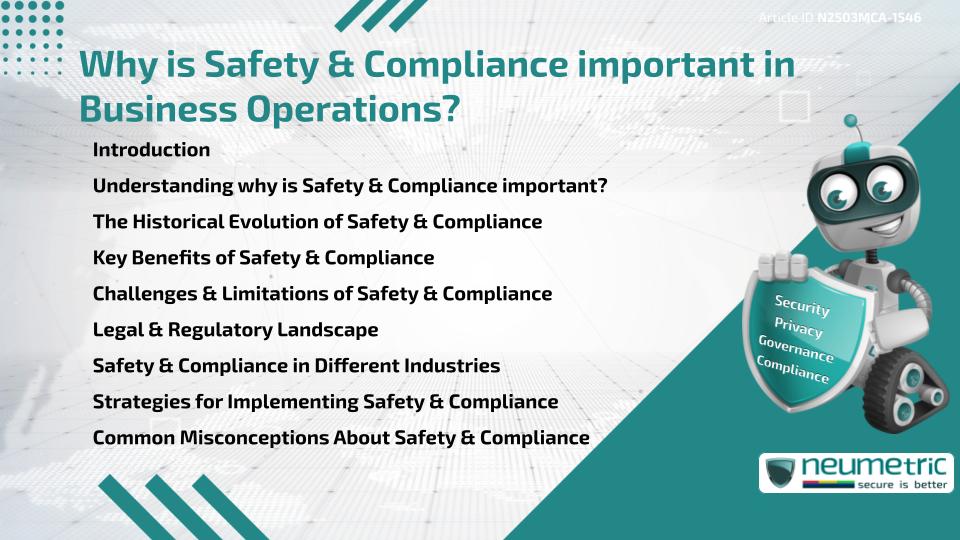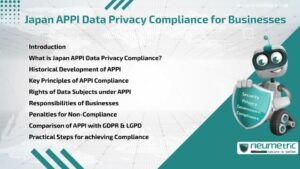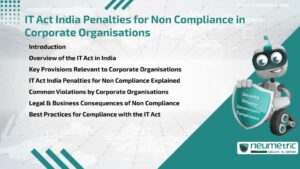Table of Contents
ToggleIntroduction
Why is Safety and Compliance important? This question arises in industries ranging from Healthcare to Finance. Safety measures protect individuals & Organisations from harm, while Compliance ensures adherence to laws & regulations. Without these safeguards, businesses Risk legal penalties, Financial losses & reputational damage. This article explores the significance of Safety & Compliance, delving into their historical evolution, benefits & challenges.
Understanding why is Safety and Compliance important?
Safety refers to the measures taken to protect People, Assets & the Environment from harm. Compliance involves following legal, ethical & industry-specific Standards. Together, they form a structured approach to minimizing Risks & ensuring smooth operations. Organisations must establish Policies, train Employees & regularly assess their Safety & Compliance status.
The Historical Evolution of Safety & Compliance
The concept of Safety dates back to ancient civilizations where rules governed Construction, Trade & Medicine. The Industrial Revolution brought heightened Risks, leading to modern Labor Laws & Workplace Safety regulations. Compliance gained prominence with global trade, requiring businesses to follow International Laws. Today, Technology-driven Compliance Frameworks streamline regulatory adherence, making it easier for Organisations to meet Safety Standards.
Key Benefits of Safety & Compliance
Why is Safety and Compliance important? The benefits include:
- Risk Reduction: Prevents accidents, injuries & Financial losses.
- Legal Adherence: Avoids fines, lawsuits & business shutdowns.
- Operational Efficiency: Ensures smooth processes & workforce productivity.
- Reputation Protection: Builds Consumer Trust & Investor confidence.
- Competitive Advantage: Strengthens market position & business credibility.
Challenges & Limitations of Safety & Compliance
Despite its importance, Safety & Compliance pose challenges such as:
- Complex Regulations: Laws vary by region & industry, requiring constant monitoring.
- Implementation Costs: Training, Audits & Technology Investments can be expensive.
- Resistance to Change: Employees may resist new Safety Policies due to inconvenience.
- Limited Awareness: Small Businesses may lack knowledge of Compliance Requirements.
Legal & Regulatory Landscape
Governments worldwide establish regulations to enforce Safety & Compliance. Laws such as the Occupational Safety & Health Act [OSHA] and General Data Protection Regulation [GDPR] outline industry-specific requirements. Businesses must stay informed about evolving legal standards to maintain Compliance & avoid penalties.
Safety & Compliance in Different Industries
Different industries have unique Safety & Compliance needs:
- Healthcare: Patient Data Protection & Hygiene Standards.
- Finance: Anti-Money Laundering Laws & Data Security.
- Manufacturing: Workplace Safety measures & Environmental Compliance.
- Technology: Cybersecurity & Intellectual Property Protection.
Strategies for Implementing Safety & Compliance
Organisations can enhance Safety & Compliance by:
- Establishing Clear Policies: Documenting & communicating guidelines.
- Regular Training: Educating Employees on Compliance & Safety Protocols.
- Conducting Audits: Identifying Gaps & improving processes.
- Leveraging Technology: Using Automated Tools for Compliance tracking.
- Encouraging a Safety Culture: Promoting proactive Risk Management.
Common Misconceptions About Safety & Compliance
Misconceptions about Safety & Compliance include:
- “Compliance is only for large companies.” Regulations apply to businesses of all sizes.
- “Once compliant, always compliant.” Compliance requires Continuous Monitoring.
- “Safety slows down operations.” Proper Safety measures enhance efficiency.
- “Compliance is just about avoiding fines.” It also builds Trust & Credibility.
Conclusion
Why is Safety and Compliance important? It safeguards People, Businesses & the Environment. Organisations must stay updated on regulations, implement Best Practices & promote a culture of Safety. Overcoming challenges ensures long-term success & sustainability.
Takeaways
- Safety prevents harm & Compliance ensures legal adherence.
- Industries have unique Safety & Compliance Requirements.
- Regulations evolve, requiring Continuous Monitoring.
- Compliance enhances Business Reputation & Efficiency.
- A proactive approach mitigates Risks & improves sustainability.
FAQ
Why is Safety & Compliance important in the workplace?
It prevents accidents, reduces liability & ensures legal adherence, creating a secure & efficient work environment.
How do companies stay compliant with regulations?
Companies implement Policies, conduct regular Audits, train Employees & use Technology to monitor regulatory changes.
What happens if a business fails to comply with Safety regulations?
Non-Compliance can result in fines, legal actions, reputational damage & operational disruptions.
Is Compliance mandatory for Small Businesses?
Yes, regulations apply to businesses of all sizes, though requirements may vary by Industry & Region.
How does Safety impact Employee productivity?
A safe work environment reduces injuries, enhances morale & boosts overall productivity.
Why is Compliance important for Data Security?
It protects Sensitive Information from breaches, ensuring Customer Trust & Regulatory Adherence.
Can Compliance improve Customer Trust?
Yes, customers prefer businesses that prioritise Safety & Ethical practices, enhancing Brand Reputation.
What industries require the highest levels of Compliance?
Healthcare, Finance, Manufacturing & Technology Industries have strict Compliance Requirements.
How can businesses simplify Compliance processes?
By using Automated Tools, staying informed about Regulations & fostering a culture of Continuous Improvement.
Need help?
Neumetric provides organisations the necessary help to achieve their Cybersecurity, Compliance, Governance, Privacy, Certifications & Pentesting goals.
Organisations & Businesses, specifically those which provide SaaS & AI Solutions, usually need a Cybersecurity Partner for meeting & maintaining the ongoing Security & Privacy needs & requirements of their Clients & Customers.
SOC 2, ISO 27001, ISO 42001, NIST, HIPAA, HECVAT, EU GDPR are some of the Frameworks that are served by Fusion – a centralised, automated, AI-enabled SaaS Solution created & managed by Neumetric.
Reach out to us!





